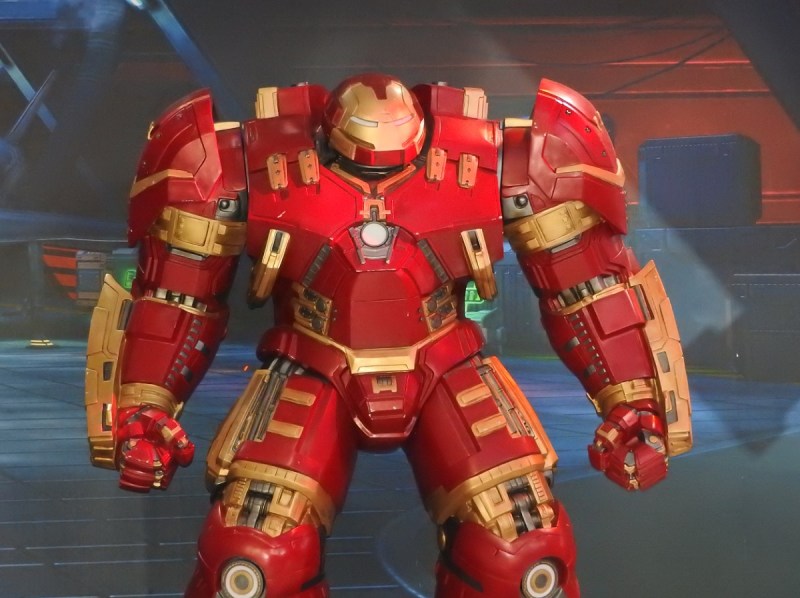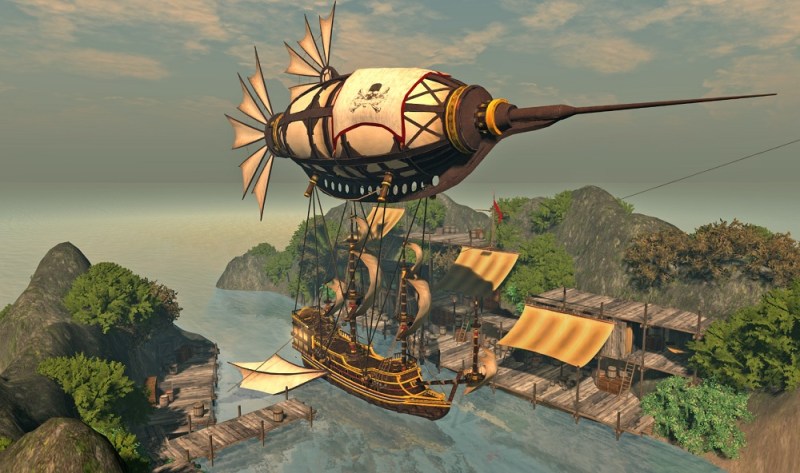
Above: Iron Man character from Marvel: Contest of Champions at ChinaJoy in 2015.
GamesBeat: I don’t know how you see a parallel to the dot-com days, but back then we had a lot of problems with scams and hype. You had some real companies emerge from the crash, like Amazon and Paypal, and they went on to do all the things people envisioned for the new technology. Blockchain seems to be in the same boat. I don’t know if it’s truly a parallel, but do you think that means it will take off more slowly as we work out all of these things and identify who the real companies are, or which currencies will survive out of the 2,000?
Seyler: I’m not sure I have a great answer for that. My intuition is that this will happen faster. The winners and best solutions and protocols will shake out faster. We saw people get comfortable with buying things online and trusting they could put their credit cards into a merchant’s website. But there’s a fair analogy to draw between the early scary experience of paying for stuff online and trying to work right now with cryptocurrencies as they are.
Chou: All the innovation and work right now in blockchain technology is all happening in software. In the earlier days of the internet we were still figuring out how to lay cable between continents, which is a much larger and capital-intensive process. A lot of what’s happening in blockchain — my view is that it will happen faster. A lot of difficult problems are involved across many different disciplines, but ultimately it’s all happening in software. That means it’ll move much faster. All the physical infrastructure is in place today.
GamesBeat: Some of the initial arguments were that blockchain is good for stores. It was good to do things like speeding up the time at which someone got paid. The Robot Cash people were saying they could probably pay developers within hours instead of 60 days, because if you’re paying in blockchain currency you can verify that it’s arrived. But they backed off on that because the game publishers weren’t comfortable with being paid in crypto. They’d rather be paid in U.S. dollars. Some of those things that seemed promising could be done without blockchain – for example, just lowering the royalty fee for the platform, like Epic has done — and other things sound promising, but I’m not sure whether developers themselves see them as good things to do yet.
People have been asking what blockchain can do for gameplay. If that happens, they’re interested. They don’t care about this kind of infrastructure stuff yet.
Seyler: We’re very much focused on things that will matter to players and impact the play experience in positive ways. The infrastructure comes with some of the same usability issues. To the point you mentioned about people not wanting to be paid in cryptocurrency, that’s largely because it’s difficult to use, and because there’s volatility everywhere. Why bear volatility risk if you don’t have to? Even waiting a couple of days for a wire to clear is okay if you’re just trying to pay a developer to complete a milestone.
That sort of infrastructure really doesn’t work inside game economies, though. Even very high throughput credit card infrastructure doesn’t work very well inside game economies, largely because of those counter-party risks. Microtransactions are expensive for companies like Apple to support and deliver on. They’re absorbing pass-through costs from credit card companies. They have some measures detect fraud and mitigate counter-party risk. But blockchain natively inherits, in our view, much better risk mitigation. It does come with volatility and it does come with UX issues right now. But those are very resolvable. We’re weighing technologies in the long term, both inside games and the infrastructure layer.
GamesBeat: The ability to own things and trade is definitely a player benefit. Are there other player benefits you see?
Seyler: The way that most players participate in free-to-play games today, despite a variety of different roles — some people play more often than others, some people take more responsibility in game communities than others — most of the time that’s all happening outside the real economy. It’s happening in the form of totally virtual currencies that aren’t marketable. They can’t be transacted with another player, sold on any markets, or purchased.
That can change. We can build economies on top of this kind of infrastructure that support players earning money rather than paying to accelerate progress or get access to premium features or benefits. That doesn’t have to come from the game developer. That can come from other players, depending on player benefits and behavior. I see game developers do a lot of creative and exciting things in building those kinds of systems and incentives into their games. It has the potential to improve communities of players inside games, improve behavior, probably eliminate a lot of behavior and incentivize the good.
GamesBeat: Do you mean something like — if you have a clan in a game, say, maybe that clan can offer incentives for a player to join
Seyler: Totally. To join, to complete quests, to lead missions, to be active and vocal in a leadership role. With those behaviors, right now the outcome is mostly the same for anybody inside a guild no matter what role you play as far as interacting with the game economy. That can change and improve. That’s where I think game developers turning over the way those transactions happen and what they happen for — it’s largely up to players to determine. Here’s 100 people, you guys decide how you want to chase resources to chase big goals inside this game. I think that will lead to more interesting games and better-performing games.

Above: Second Life airborne pirate ship
GamesBeat: Is the model you’re envisioning more like something like Second Life, where players wind up creating a lot of things? If there’s a transaction, the company will get a cut of that, but it doesn’t really want to control all of the trading that happens.
Seyler: Second Life is definitely more of a free market than a lot of games. In that respect it’s a good example. We’re agnostic as to whether a game developer should take a cut of transactions or not. Transaction fees are friction, and it may be better for developers and players and the long-term health of a game to not have transaction fees. We think those are great options to pursue.
GamesBeat: Is there a better way for developers to make money than free-to-play or transaction fees?
Seyler: We think a lot of games are going to issue their own currencies and items that are transactable between players for real money. That can be a source of revenue that’s more transparent and supports a much freer market, inside the game and outside, than what’s available today.

